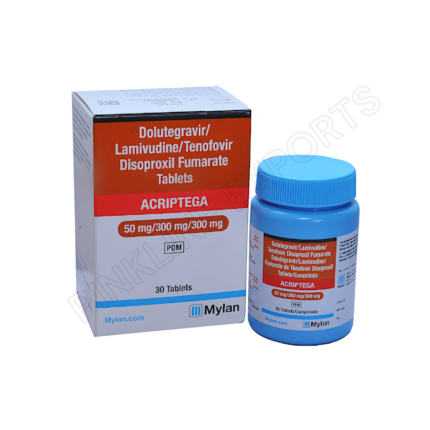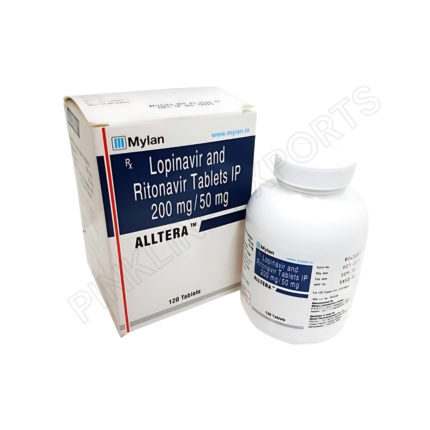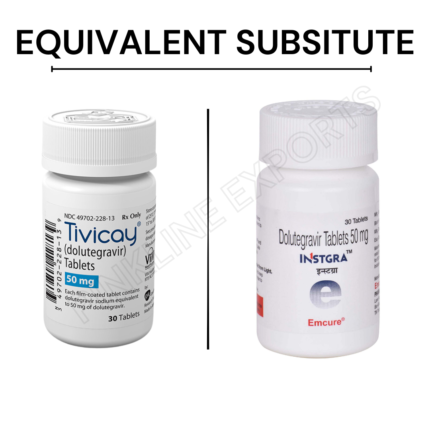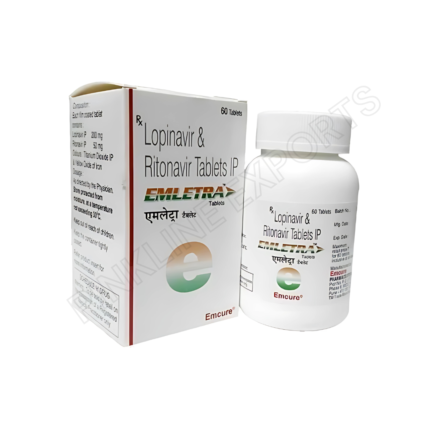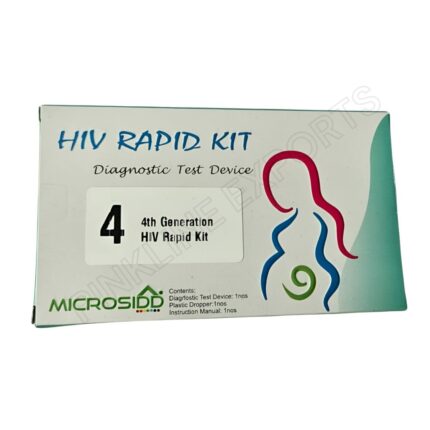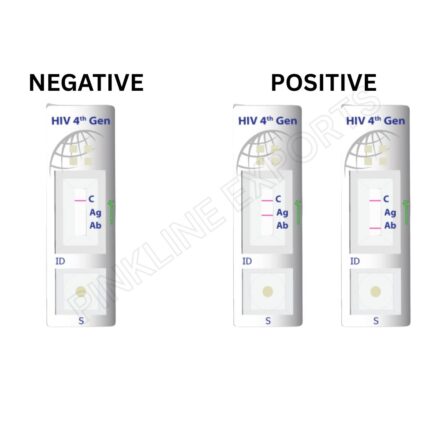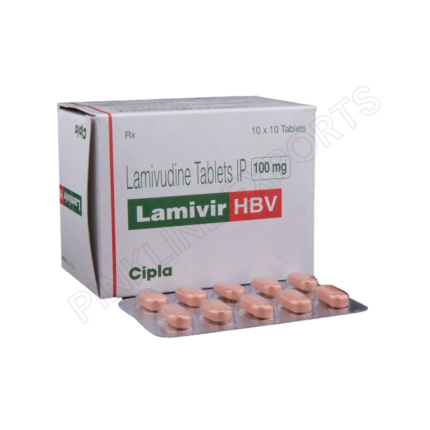Showing 1–12 of 35 results
Abec – L
Acriptega
Alltera
Atazor-R
Dolutegravir 50 Mg
DoxyPEP – Doxycycline 100 Mg
Efavirenz 600 Mg
Emletra Tablets
Inbec Tablets – Triumeq
Lamivudine 100 Mg
Lopikast Tablets
Comprehensive Guide to HIV: Causes, Treatment Options, Natural Support, and Expert Consultation
Human Immunodeficiency Virus, commonly known as HIV, is a virus that destroys the immune system. It majorly attacks CD4 cells, also known as T cells, which are subsets of an immune cell used by the body to defend against infection. If you don't treat HIV, you can get Acquired Immunodeficiency Syndrome (AIDS). It is necessary to know about AIDS so that they do not spread and so that those who begin the treatment have better results.
The long-term effects of HIV on health and societies make it important to deal with it. People with HIV / AIDS now have more hope because of new hiv medicine that make it possible to control the virus well and significantly reduce the risk of transmission.
What is HIV?
It is an acronym of Human Immunodeficiency Virus. This virus destroys the immune system, particularly CD4 cells, which assist in fighting off diseases. Due to HIV, the immune system weakens with time. This makes the body less able to counter common infections. Unless you handle the virus properly, it will continue to expand and damage immune cells. Individuals with HIV get to the end stage, which is known as Acquired Immunodeficiency Syndrome (AIDS). AIDS is so bad for the immune system. When HIV is diagnosed early and the appropriate HIV drugs are used, individuals with HIV are in a position to manage the infection and avoid its progression into AIDs.
Causes of HIV infection
The most common way for HIV to spread is through sexual contact with someone who has it without using a condom. This is because HIV gets into your blood from contaminated body fluids. Blood, semen, vaginal fluids, and mucus from the anus are all in this. It can also be spread
- Sharing needles, syringes, or other tools for shooting drugs with someone who has the virus.
- By giving a person with a known virus sex toys.
- To your child during pregnancy or after delivery, in case you have a higher amount of the virus than usual.
It's very important to get the right treatment for HIV. If someone has HIV and wants to get treatment, they can trust Pinkline Export to give them good drugs at a fair price. There is less chance of the virus spreading when people get these treatments. They also make life much better for people who have HIV/AIDS.
Treatment or Solution Options
The best way to treat HIV is with antiretroviral therapy (ART). In order to control the virus and prevent it from getting worse, it is a very effective way that uses a combination of HIV medications. Reducing the amount of HIV in the body is how ART works. This helps the immune system heal and work right. Early and regular use of hiv medication makes the quality of life for people with HIV much better and lowers the risk of transmission.
The drugs that can contribute to fighting HIV include numerous types.
- NNRTIs: Prevent the ability of HIV to reproduce itself by eliminating a protein through which HIV reproduces.
- NRTIs: Are jigsaw puzzle bits of the construction blocks that HIV uses to create additional copies of itself.
- Integrase inhibitors: Stop a protein known as integrase from doing its job. Integrationase is a protein that HIV uses to get its DNA into CD4 T cells.
In the past few years, fixed-dose combination medicines have made hiv aids treatment easier by combining several drugs into a single daily pill. You can try medications from Pinkline Exports.
- Descovy: Emtricitabine and tenofovir alafenamide are two drugs that are used together to treat HIV and prevent it from spreading (PrEP).
- Taficure EM: Emtricitabine and tenofovir alafenamide are ingredients in the generic form of Descovy, which is used to manage HIV.
- Tivicay: Dolutegravir is an antiretroviral drug based on dolutegravir used in combination treatment to treat HIV -1 infection.
- Thejavir 50: Thejavir 50 is a generic version of dolutegravir 50 mg that is used alongside other antiretrovirals to manage HIV-1 infection.
Types of HIV Medication
PrEP Medicines: Truvada, Descovy, and Apretude are examples of Pre-Exposure Prophylaxis (PrEP) drugs that help keep people at high risk of getting HIV from getting it. When taken every day or by injection, they work quite well when administered before possible exposure.
PEP Medicines: People who could have been exposed to HIV use PEP (Post-Exposure Prophylaxis) drugs, including Truvada plus Tivicay or Isentress, for 28 days. Starting therapy within 72 hours makes the likelihood of becoming sick far lower.
Remedies or Natural Alternatives
At this moment, there is no natural way HIV cure, although a healthy life, proper diet, and vitamins may make you feel better. Your nervous system can be aided by consuming adequate vitamins, minerals and antioxidants in your diet. Other than having adequate sleep and physical activity, these are some of the ways that will also allow the body to overcome the infection. However, you should be aware that natural treatments are not a substitute for HIV medication.
When to Consult an Expert
Consult a physician or a nurse in case you are sure that you were exposed to HIV. The early tests and diagnosis will enable people to begin with the HIV medication at early stages, hence enhancing their health in the long term. Delaying a visit to the doctor can worsen your illness and make it more difficult to treat.
Visit your doctor often to assess your viral load and CD4 cell numbers. These are significant indications of HIV medication response. Doctors also manage side effects of HIV medication to keep it effective and manageable.
You should also see a doctor before using PrEP or PEP to protect yourself. Taking HIV medications from Pinkline Exports early and as prescribed by your doctor works best.
FAQs
What is the difference between HIV and AIDS?
After a while, HIV makes the defense system less strong. HIV ends in AIDS, which is the last and worst stage. It hurts the immune system a lot.
How is HIV transmitted?
You can also contract HIV when handling HIV contaminated blood, sperm, vaginal or oral fluids or breast milk. You may acquire this illness through needle sharing or unprotected sexual intercourse, or you may be a mother.
Is there a cure for HIV?
HIV cannot be cured yet. Having the right antiviral drugs (ART), individuals can control the virus and lead productive and long lives.
What do we have as HIV treatment nowadays?
Today, a significant volume of the drugs, long-acting injectables (DAIs), fixed dose combinations (e.g. Biktarvy, Dovato and Cabenuva) and daily oral antiretroviral therapy (ART). These medications make the immune system stronger, and the infection will not be able to multiply.
When should I start HIV medication?
You should start getting treatment for HIV as soon as you can. If you obtain care soon, the virus stays under control, your immune system stays strong, and it doesn't spread to other people.
Can someone with undetectable HIV transmit the virus?
Not at all. People who are undergoing regular therapy can't have sex and transfer HIV. "Undetectable = Untransmittable" is what it implies.

.svg)




